Dear friends of Turtle Foundation,
We are currently in the middle of two important nesting seasons for different species of sea turtles. Towards the end of next month, the finale of this year’s nesting season for the vulnerable loggerhead turtle (Caretta caretta) on Boa Vista is approaching. The numbers of nests protected so far and the low poaching cases give hope for a successful season.
At the same time, preparations are underway for the nesting season of a particularly endangered population of the impressive leatherback turtle (Dermochelys coriacea), from which some of the adults are just making their way to their nesting beaches in the north-eastern Indian Ocean.
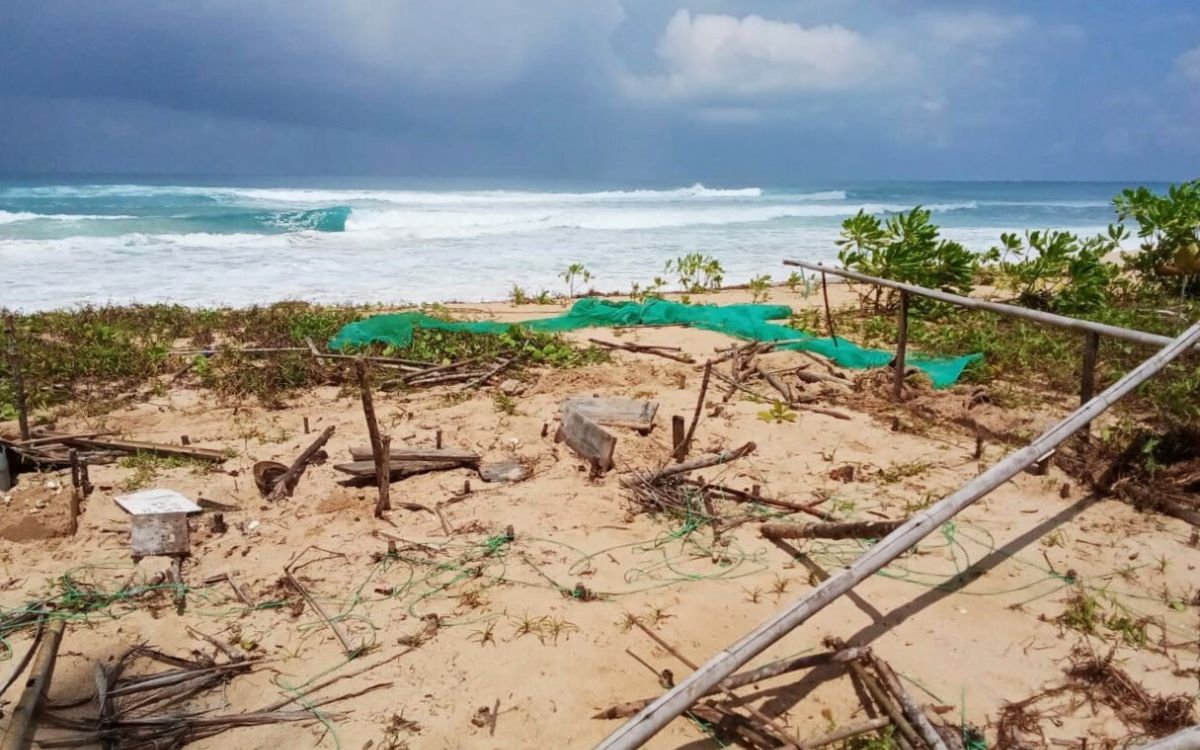
On the project islands of Sipora (Mentawai Archipelago) and Selaut Besar (Aceh) in West Sumatra, the Yayasan Penyu Indonesia team is busy preparing camps and hatcheries, procuring equipment and food for the coming months. In addition, a new base camp has been set up on Simeulue, which will make it much easier to transport equipment and rangers to the remote island of Selaut Besar.
In this newsletter, we would like to tell you what else has happened in our project areas over the last few months.
Boa Vista: funding for protection of loggerhead turtles
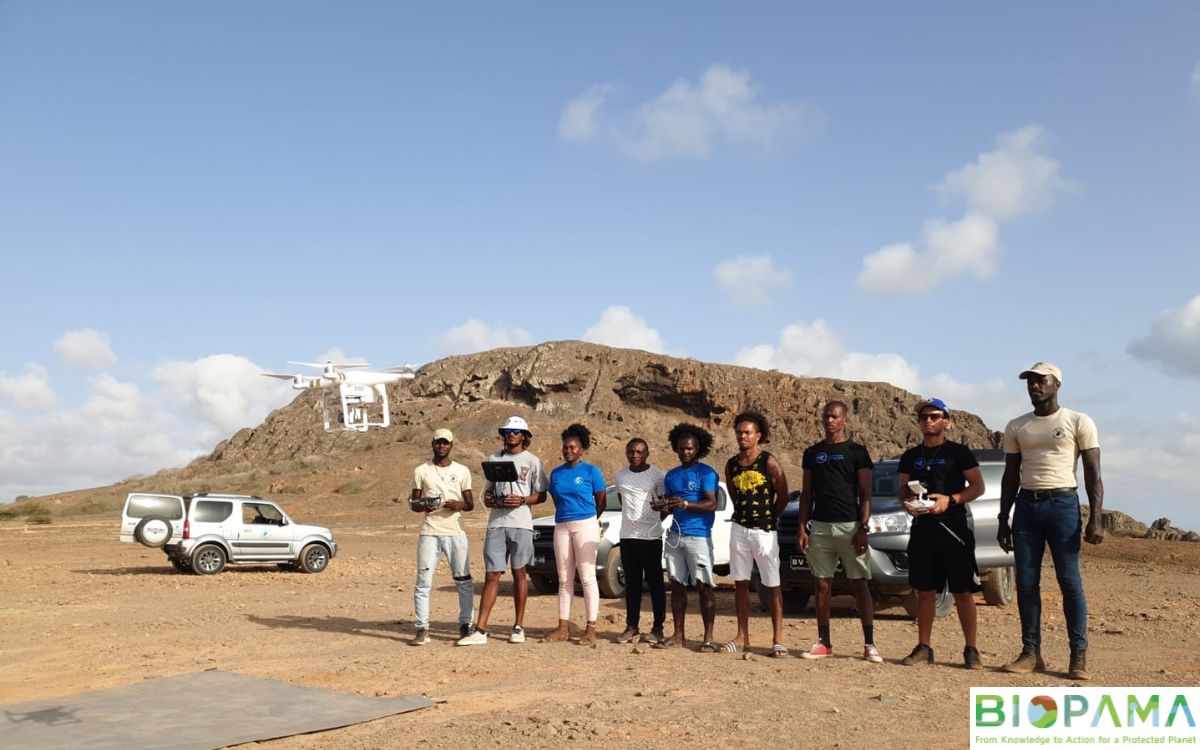
This year, our conservation work in Boa Vista is supported by the Biodiversity and Protected Areas Management (BIOPAMA) Programme. The funding’s goal is to ultimately facilitate long-term recovery of the endangered loggerhead turtle population.
With the funding it is possible to improve the team’s effectiveness: Four new drones have been purchased for all three local NGOs plus the ministry of environment to be able to conduct morning census patrols from the air. The aim: reduce the number of lost or trapped turtles found dead due to exhaustion and dehydration. The drones enable the team to quickly detect the animals from the air. By this, additional threats or pressures on the population can also be identified, such as evidencing the prohibited movement of vehicles on the nesting beaches.
The drone training was provided by our colleagues Adilson Ramos and Emilio Landim to 8 brand new drone pilots from all four organisations. This was a great opportunity to showcase the capacities of the Fundaçao Tartaruga drone team and promote Cabo Verdeans training other Cabo Verdeans.
Banggai: Red algae farming as a sustainable source of income
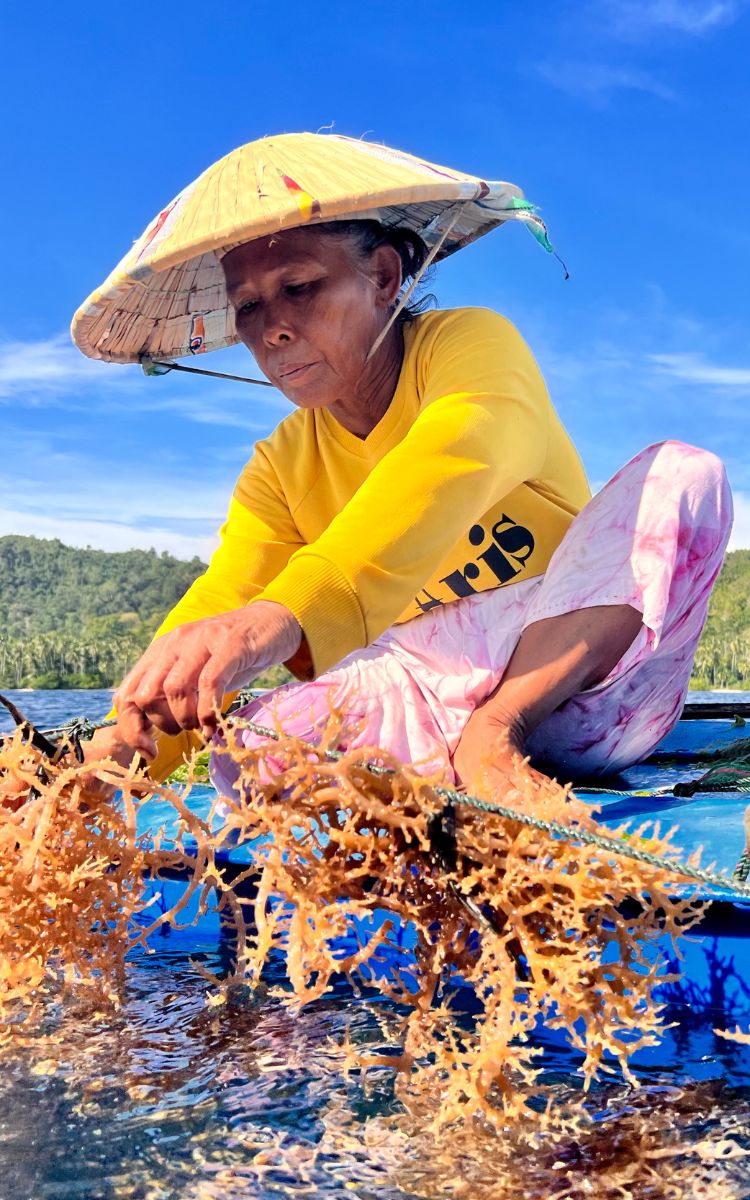
As part of our anti-turtleshell project in Banggai, Central Sulawesi, we started to support the local population on the island of Tembang in cultivating red algae some time ago. The idea behind this is that the villagers create an alternative income to fishing by growing the fast-growing algae. This is because fishing drives most families into a debt trap due to financial dependencies. The project was accompanied by an expert in aquaculture and is already bearing fruit. After a group of interested people was formed in the village community, the first seedlings were planted alongside the coast.
Since May this year, the group members have been cultivating the plants, controlling its growth and cleaning it from filamentous algae. The first crop of the versatile algae, which is particularly popular in Asia, has already been harvested.
New project “Empowering women and young people in sea turtle conservation”
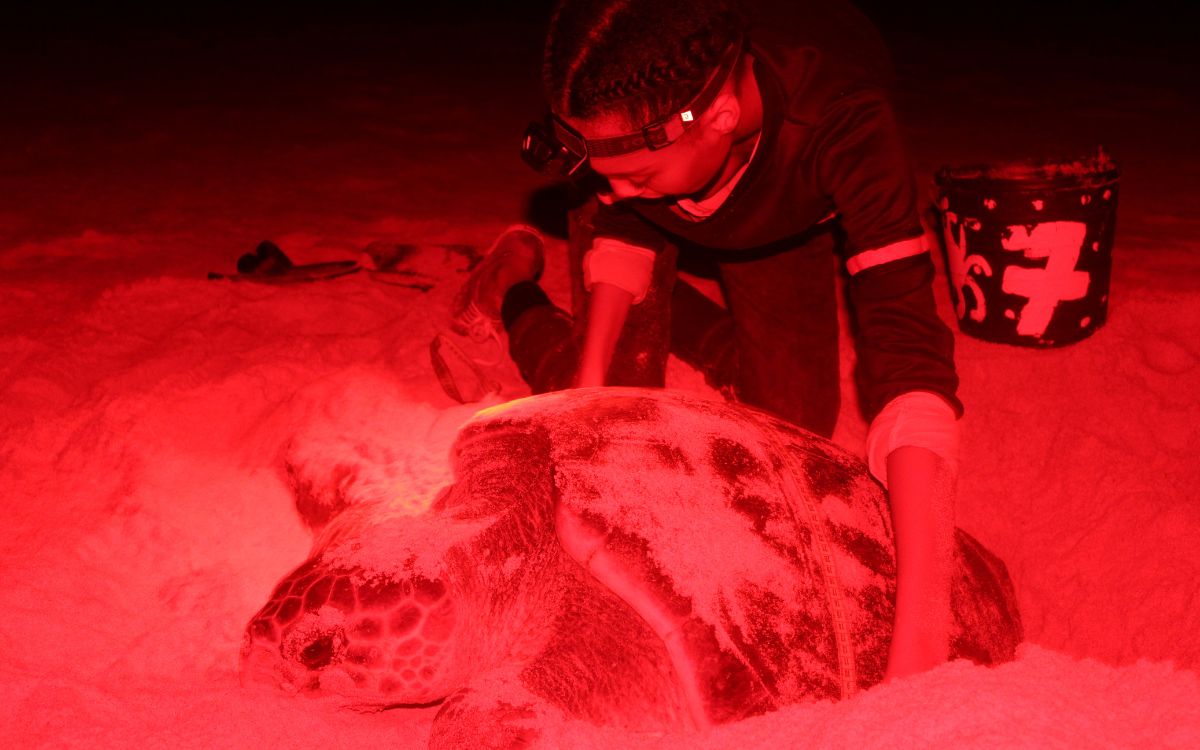
We have initiated a new project by the portuguese name „Capacitação de mulheres e jovens na conservação das tartarugas“ on Boa Vista in July. Our Project Coordinator Stephany Lopes tells you what it is all about:
TF: Could you please describe the GEF Small Grants Programme funded project and its goals?
SL: National female university students participate in our project for 1–2 months, gaining hands-on conservation skills alongside our rangers and international volunteers. The working fields being beach patrols, biometric data collection, and hatchery management. Together, they organize environmental education sessions and clean-up campaigns for local children and community groups, fostering increased responsibility. From this knowledge exchange all participants benefit, focusing on their own strengths and experiences, ultimately building capacity for both students and rangers. The project also engages the local community, enabling them to continue these activities in their own communities after the project completion.
TF: Which part of the project do you personally like the most?
SL: Overall, the project opens up new opportunities for women. For example, many of them have never left their home island or boarded a plane. It also encourages women to work in wildlife conservation and helps them gain more self-determination and autonomy.
TF: What do you think will be the impacts of the activities, in the short run, and in the long term?
SL: In the short run, they will lead to better working conditions in the camps. By introducing English lessons, the students contributed to an increase in the communication between the rangers and the foreign volunteers. In the long term, we will receive more applications from female rangers, as many participants enjoyed the experience and want to return next year to work for us. Apart from that, the rangers benefit from the newly gained knowledge by the university studies which can be useful for the future.
The sea is everywhere: we took part in RhineCleanUp
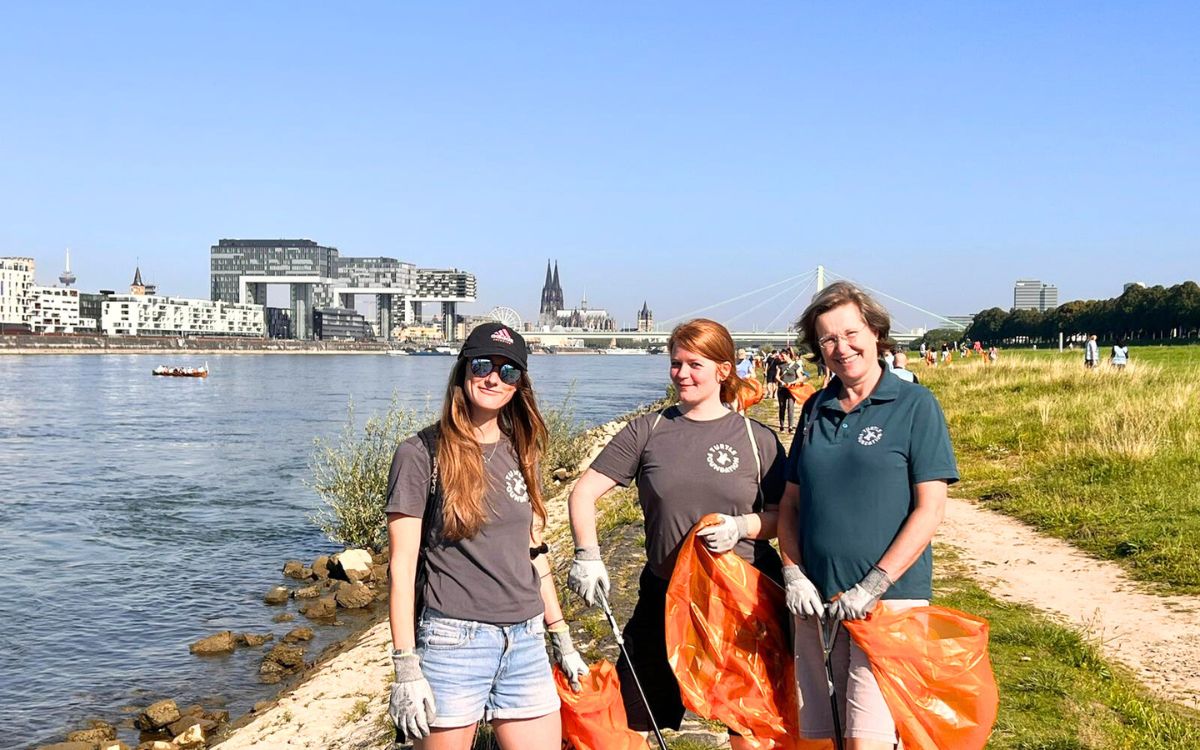
It is not only in Cape Verde and Indonesia that we are working hard to save the endangered sea turtles from extinction. This month, we had a date on our calendar right on the doorstep of the Cologne office – the RhineCleanUp. On 9 September, we were one of many organisations and individuals who responded to the call for a large-scale waste collection campaign along the entire course of the Rhine. Together with our friends from the local clean-up initiative K.R.A.K.E e. V., we did our part to ensure that in the end, within one day, a whole 1.8 tonnes of rubbish could be collected and disposed of along Cologne’s Rhine floodplains. Before it reappears on the nesting beaches of marine reptiles via international waters.
Would you like to take part in a clean-up event yourself? The World CleanUp Day website lists numerous actions that invite you to join in.


